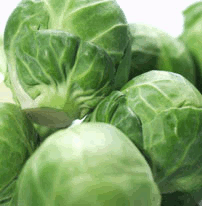


Are bitter vegetables better for you?
Bitter, of course, is one of our four basic tastes (along with sweet, salty, and sour). We have about 20,000-50,000 taste buds on our tongue, and some of these taste buds - especially the ones across the back of the tongue - have receptors for bitter taste. Bitterness can function like a warning signal, and help prevent us from eating foods that would be toxic to us. But bitterness can also be good for us.
The reason some vegetables have a bitter taste does not mean that there is anything wrong with them. Bitterness can represents something natural and healthy and bitter vegetables can be a great addition to your Healthier Way of Eating! For example, many of the health-promoting phytonutrients that act as powerful antioxidants including glucopyranosides like salicins, some flavonoids and polyphenols can add bitterness to your vegetables. The American Journal of Clinical Nutrition points out that most vegetables contain antioxidant nutrients and most of these antioxidant nutrients are bitter.
Some vegetable flavors intensify when they are overcooked. More than likely one of the reasons that the Chinese eat more vegetables than Americans is because they cook them very lightly and by doing so makes them much more enjoyable. When you overcook vegetables, they can become mushy, lose their enjoyable flavors and may become undesirably bitter. Cruciferous vegetables like broccoli, kale, Brussels sprout and especially mustard greens are a good examples how overcooking your vegetables can make them more bitter. Although mustard greens are bitter even when they are raw overcooking will add to their bitterness. When cruciferous vegetables are overcooked they begin to produce sulfur compounds and emit that rotten egg smell which is closely associated with an increasingly bitter flavor.
We also have suggestions for the 30% of the population that can't tolerate the bitter taste of vegetables:
Select young vegetables
Young vegetables are less bitter and, because they are more tender, they require less cooking. Baby bok choy, baby eggplant, baby spinach, baby squash and baby carrots are examples of very young vegetables that are rarely bitter. (Most of the bagged baby carrots sold in markets are not actually baby carrots but are formed to look like baby carrots. Baby can be identified by usually being sold with their tops on.) But remember that while young vegetables are less bitter they are also less nutritious because young vegetables are not developed fully and they have yet reached their peak nutritional value. Restaurants solve the bitterness problem by serving baby vegetables.
Select sweet vegetables
There are many sweet vegetables to include in your Healthier Way of Eating that will fulfill your daily requirement of 5-9 servings of fruits and vegetables per day. These include:
Sweet potatoes (including yams), squash, carrots and beets.
Peas and corn and vine ripened tomatoes, sautéed onions and garlic.
Avocadoes, cucumbers and fennel.
Romaine lettuce, head lettuce, baby lettuce.
Select the Right Cooking Method
Fresh raw vegetables are rarely bitter. Sometimes the bitter flavor of some vegetables is developed with prolonged cooking. This is the reason we recommend lightly steaming, sautéing or stir-frying your vegetables, methods that cook your vegetables very quickly.
Select the Right Dressing
Selecting a dressing that satisfies your personal taste can help mellow the bitterness of your vegetables. I have found dressing with extra virgin olive oil is the best way to blend the rich taste of vegetables. Olive oil makes your vegetables, tasty and satisfying especially when the olive oil binds with the flavors of lemon, garlic, salt and pepper in the favorite Mediterranean tradition. In our experience soy sauce also tames bitterness. Adding a few drops of soy sauce to your vegetables, especially cruciferous vegetables, gives them a mellow sweeter flavor.



